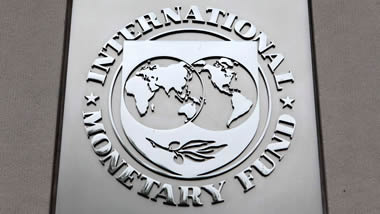The International Monetary Fund has called on Nigeria to intensify efforts toward exiting the Financial Action Task Force (FATF) grey list, even as it praised the country’s recent economic reforms for stabilising inflation and restoring foreign exchange market confidence.
In its newly released Article IV Consultation report, the IMF acknowledged Nigeria’s progress following a wave of policy changes it says have improved fiscal discipline and economic credibility.
Nigeria was placed on the FATF grey list in February 2023 due to concerns over increased capital inflows and lapses in anti-money laundering and counter-terrorism financing measures. The grey list flags jurisdictions under heightened monitoring for weaknesses in financial crime controls.
According to the IMF Executive Board’s assessment, Nigeria’s efforts to strengthen its AML/CFT (Anti-Money Laundering and Combating the Financing of Terrorism) framework were recognised, but the Fund stressed that remaining gaps must be addressed promptly to secure removal from the list.

While noting that inflation has been on a downward trend, the IMF highlighted ongoing challenges such as infrastructure shortfalls, insecurity, and fiscal vulnerabilities. The report also called for improvements in public services, particularly in electricity supply, healthcare, education, and agricultural productivity, to bolster inclusive growth and climate resilience.
“The reforms should help establish a strong foundation for sustained and inclusive growth,” the Fund stated, emphasising the need for agile policymaking amid global economic uncertainty.
A significant reform acknowledged in the report is the curtailment of the Central Bank of Nigeria’s “Ways and Means” borrowing a practice that had previously expanded well beyond statutory limits. By April 2025, the emergency funding channel had been reduced by nearly 90%, signalling a shift toward more independent monetary policy and laying groundwork for inflation targeting.
Inflation, which had spiked above 40%, eased to 22.9% in May 2025. The IMF credited the Central Bank’s tight monetary stance and recommended that it remain in place until price stability is firmly re-established.
On foreign exchange reforms, the dismantling of the multiple exchange-rate system in favour of a “willing-buyer, willing-seller” model enabled by the B-Match digital platform was described as pivotal in restoring FX market confidence.
International reserves reportedly peaked at $40.9 billion by the end of 2024, sufficient for over eight months of imports. The exchange rate premium between the official and parallel markets has narrowed sharply from over 60% to under 3% with FX inflows reaching $6.9 billion in the first quarter of 2025.
Banking sector reforms were also highlighted, including the Central Bank’s recapitalisation plan set to raise minimum capital thresholds by March 2026. This is aimed at strengthening financial stability, expanding credit access, and supporting the vision of a $1 trillion Nigerian economy.
In his reaction, Central Bank Governor Olayemi Cardoso said the report affirms Nigeria’s renewed credibility on the global stage. “At a time of global uncertainty, this assessment reaffirms that responsible, forward-looking policy choices matter,” he said. “It is both an encouragement to stay the course and a reminder that resilience and prosperity require continued discipline and vision.”
Finance Minister Wale Edun also welcomed the IMF’s findings, noting that reforms carried out over the past two years have improved fiscal performance and boosted investor confidence. He pointed to gains in the agricultural sector as a key contributor to declining food inflation, which stood at 21.4% in May.
A statement from the Ministry of Finance further noted that the 2025 budget is being implemented with a focus on sustaining reform momentum and ensuring economic stability, even amid global uncertainties such as fluctuating oil prices and shifting trade dynamics.
“The government remains vigilant and proactive in mitigating risks while advancing inclusive growth,” the statement concluded.




